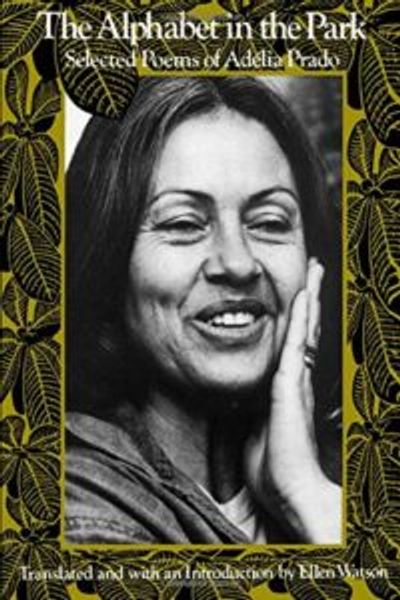Straddling the Border
by Isabel Acevedo
Isabel Acevedo on the inspiration behind her poem “Night” in our Fall 2020 Issue.
The way I see it, my poem “Night” can be classified as both a love poem and a faith poem. If you liked it, and if you agree, I have a collection to recommend to you.
I think about death and the afterlife nearly every day, so I have a fair amount of existential dread, which is where this poem begins. “The sky is a black eye. I try to sleep, / but I was thinking about death and now / have heartburn.” The treatment of the speaker’s surroundings—the humor, the bluntness—coupled with reflections on faith, desire, and mortality in my poem are influenced by Adelia Prado. The inner world of the speaker contains the conflict that is often present when you’ve grown up in a Christian household, the conflict between God and desire. If I’m afraid to leave the world, is that disappointing to God? Can I find comfort in heaven and in another person?
Prado often addresses both God and desire in the same poem. Her speaker can see only two choices: “either go crazy or turn holy.” She identifies these choices in her poem “Serenade,” in which the speaker must open the window for a man or else close it. She ends, “How will I open the window, unless I’m crazy? / How will I close it, unless I’m holy?” Though the conflict expressed is more sexual than the conflict presented in my poem, there is still a tension between the speaker and God. You could say the speaker has the same two choices: go crazy or turn holy. They are fully aware of themselves straddling the border between the two, or straddling the windowsill as it were, with one leg swinging in the room of holiness and the other out in the world of desire. In “Night,” the speaker’s vanity, their fear of death, has this undercurrent of understanding that love and trust in God is supposed to eliminate the desire for anything other than holiness, and the fear of what comes or does not come after death. And yet, it doesn’t. And if the speaker didn’t turn holy, well, I guess they’ll go crazy. It is a conflict that I didn’t quite know how to articulate before reading Prado’s work.
The Alphabet in the Park by Adelia Prado, translated by Ellen Watson, was the first collection of Prado’s that I read, and I return to it again and again. It addresses the full cast of emotions in a life: exultation, grief, loneliness, love, fear… I can’t recommend it enough. But if you’re having trouble committing to a full collection at this time, a poem that is not in Alphabet in the Park, but that I feel is a partner to my poem, “Night,” is “In the Middle of the Night,” also by Adelia Prado and translated by Ellen Watson. It begins “I woke him up to tell him my dream: / no table, no pitcher to prop them— / white bougainvilleas, disconnected from the dark.” The speaker goes on to describe the dream that feels so important and gorgeous and sinister in just a few lines. “It hurt like pleasure,” she writes. Again, there is the tension of two dissimilar things that shouldn’t go together, but they must. She can’t fall back to sleep and writes, “I’d like to be simple, right now—” and that is what I think to myself in bed at 3 a.m. waiting for myself to become “simple enough to fall back to sleep.”